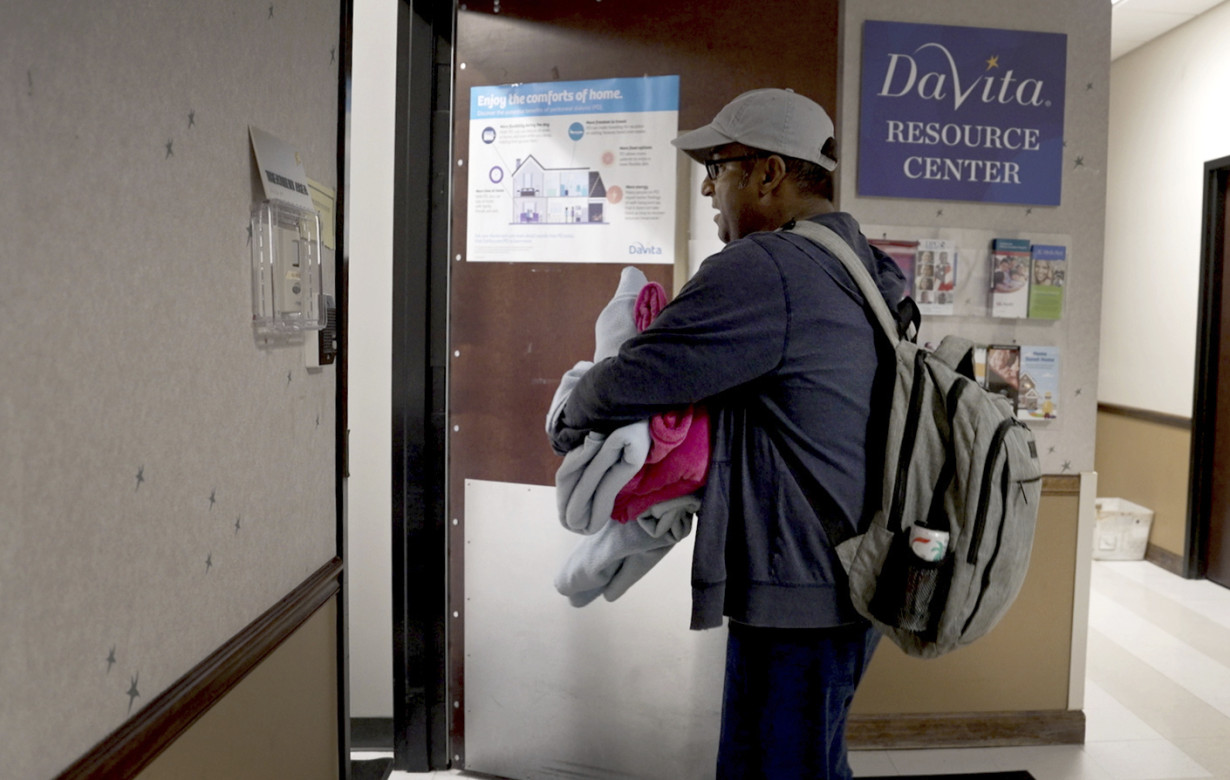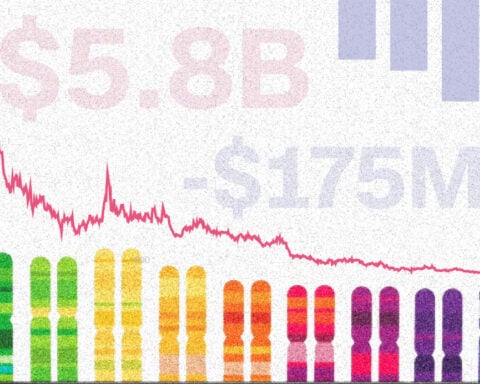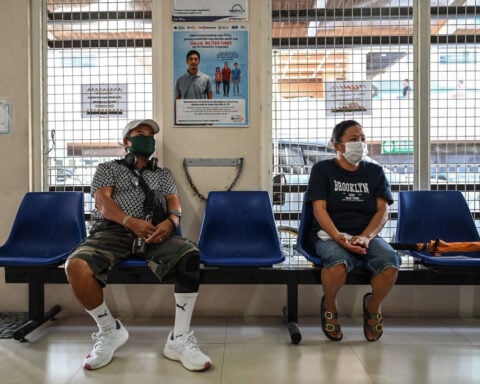LOUISVILLE, Ky. (AP) — The calls and emails started coming into NYU Langone Health and Massachusetts General Hospital soon after doctors began experimenting with pig organs in humans.
People worried they’ll never get a scarce human transplant asked: When could we get a pig kidney?
Alex Berrios of Louisville, Kentucky, needs a second transplant but finding another human match is proving impossible. So he's closely watching for a chance at pig kidney research.
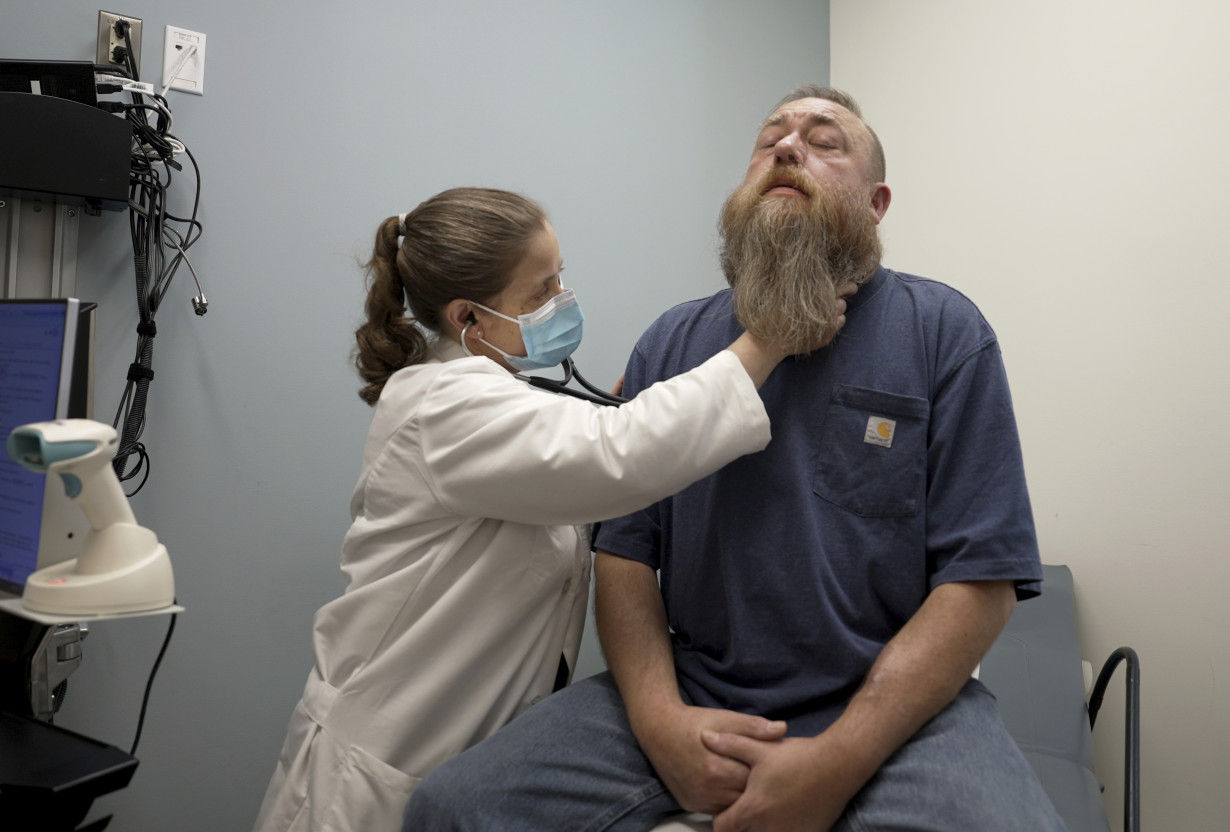
"It may not work, and I have to be OK with that,” Berrios said. “I think it’s worth the shot.”
Now two U.S. companies aim to begin the world’s first clinical trials of xenotransplantation in 2025 – using pig kidneys or hearts to try to save human lives. Would-be volunteers are impatient to see if they'll qualify as researchers fine-tune how best to test if the humanized pig organs they’ve designed might really work.
Anticipation is growing with news that an Alabama woman was faring well after a pig kidney transplant at NYU in late November. Towana Looney is the fifth American to receive a gene-edited pig organ, each case so far an emergency experiment for people out of options.
None of the previous recipients — two given pig hearts and two kidneys — survived more than two months but that hasn't deterred researchers hunting an alternative to the dire shortage of transplantable organs.
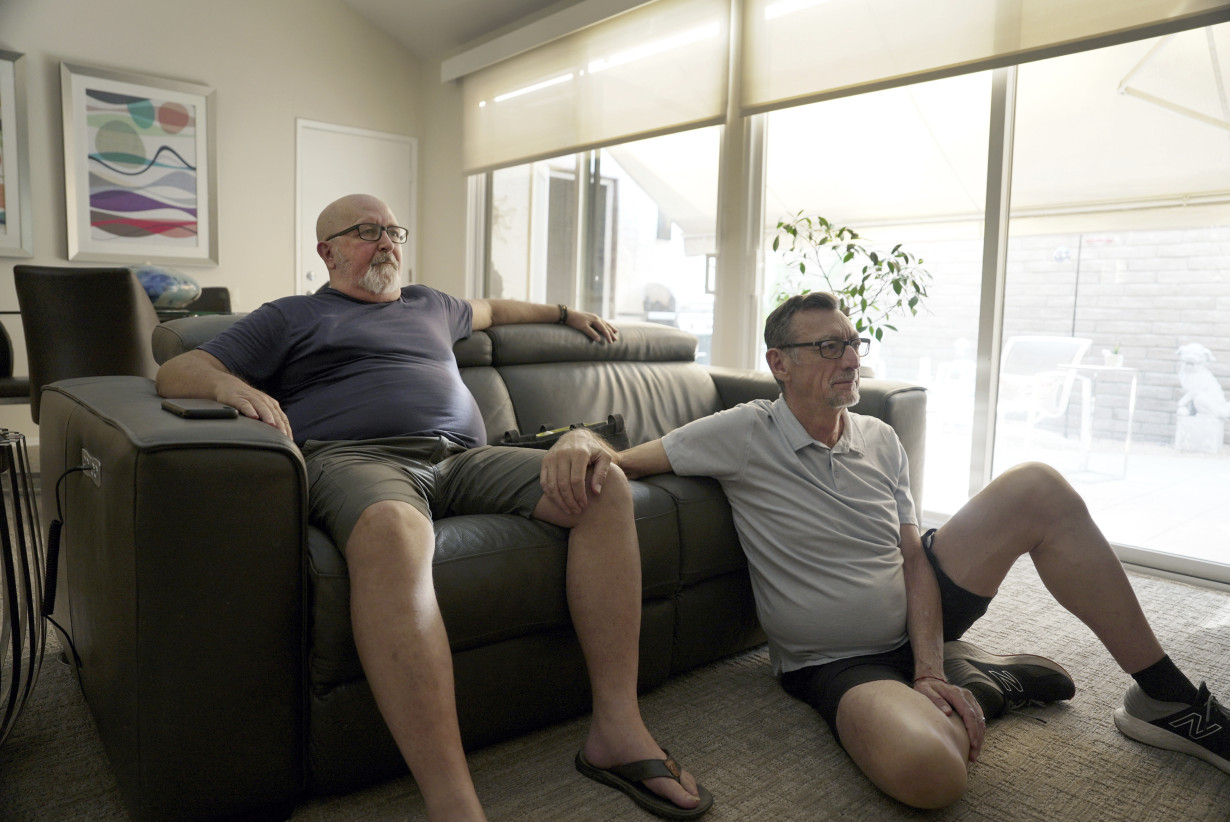
“We have to have the courage to continue,” said University of Maryland transplant surgeon Dr. Bartley Griffith.
Patients are driving the quest for pig organ transplants
Back in 2022, Griffith had a hard time figuring out how to ask a dying patient if he’d consider undergoing the world’s first transplant of a gene-edited pig heart.
“I was so afraid to mention the word pig heart,” Griffith said. He marveled that patient David Bennett responded with a joke about oinking and made clear if the last-ditch attempt failed that “maybe you’ll learn something for others like me.”
Fast forward to late 2023, when patients at a National Kidney Foundation meeting with FDA officials and pig developers described a life so miserable on dialysis that they, too, would chance an animal organ.
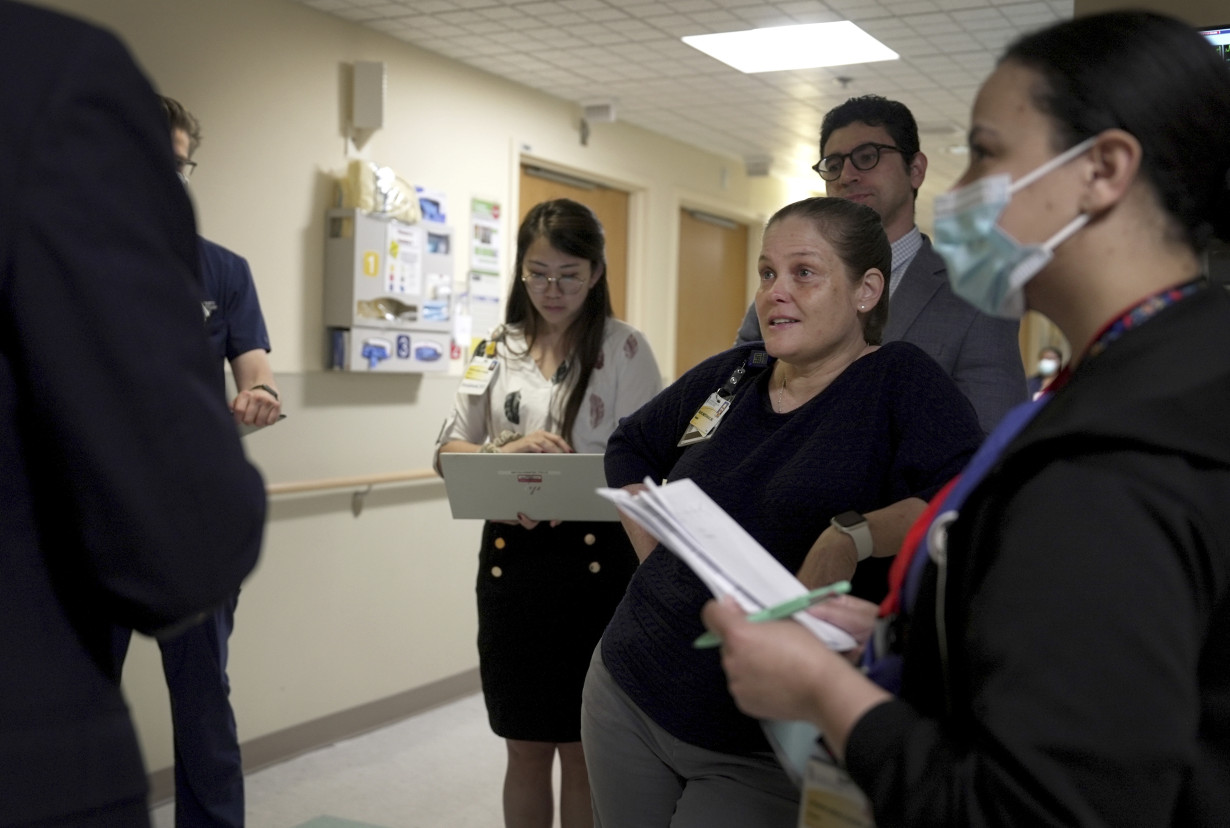
“Why not try? That was really what we took back,” said Mike Curtis, CEO of eGenesis, one of the companies developing organs. “It was like we really almost have an obligation to try.”
“The patients pushed us to go ahead,” agreed Dr. Tatsuo Kawai, a Mass General surgeon who’d been reluctant to even broach the idea – but last March, four months after that meeting, gave a longtime patient the first gene-edited pig kidney.
Sick and tired from dialysis, patients raise their hands for pig kidneys
In Palm Springs, California, Carl McNew emailed NYU to ask about volunteering while he’s still fairly healthy.
McNew donated a kidney to his husband in 2015 but later his remaining kidney began declining, something very rare in living donors. Medications and intermittent dialysis are helping but McNew knows he’ll eventually need a transplant.
“There’s just something about being part of something like that, that is so cutting-edge,” said McNew, who spotted news of NYU’s xenotransplant research in 2023 and emailed his interest.
For Louisville’s Berrios, donor scarcity isn’t the only hurdle. Born with a single kidney that failed in his late 20s, a living donor transplant restored his health for 13 years. But it failed in 2020 and he has since developed antibodies that would destroy another human kidney, what doctors call “highly sensitized.”
Every Monday, Wednesday and Friday, Berrios quietly slips out of his home before dawn to spend nearly four hours tethered to a dialysis machine. Getting the grueling treatments at 5 a.m. is the only way the father of two can both stay alive and hold down a fulltime job.
But dialysis doesn’t fully replace kidney function – people slowly get sicker. So even as Berrios tried an experimental therapy to tamp down his problem antibodies, he told NYU he's interested in a pig kidney.
Expected soon: Rigorous trials testing pig organ transplants
FDA rules require that pig organs be extensively tested in monkeys or baboons before humans. And while researchers have extended those primates’ survival to a year, sometimes longer, they were desperate for experience with people. After all, the pig organs are genetically altered to be more humanlike, not more baboon-like.
At NYU and the University of Alabama at Birmingham, surgeons first tested pig organs in bodies of the recently deceased, donated for scientific research.
And patients given pig organs so far have been “compassionate use” transplants, experiments that FDA allows in select emergency cases for people out of other options.
Although the first four didn’t survive long, in part because of complications from other diseases, those experiments proved pig organs could work at least for a while and offered other lessons. For example, discovery of a hidden pig virus in the first heart transplant prompted better tests for that risk.
Only rigorous studies comparing similarly ill patients will offer a clearer picture of pig organs’ potential – maybe those like Looney. Despite eight years of dialysis, she wasn’t nearly as sick as prior xenotransplant recipients but couldn’t find a matching donor. Like Berrios, she had a highly sensitized immune response.
Looney may be “kind of a litmus test” for trial candidates, said NYU’s Montgomery, who led her transplant with her original surgeon in Alabama, Dr. Jayme Locke. “She’s received the transplant at just the right time,” before dialysis did too much damage.
What gene edits produced the best pig organs for human transplant?
Scientists have tried animal-to-human transplants for years without success but now they can edit pig genes, trying to bridge the species gap enough to keep the human immune system from immediately attacking the foreign tissue. Still, nobody knows the best gene combination.
Revivicor, a United Therapeutics subsidiary, produces kidneys and hearts with 10 gene edits, “knocking out” pig genes that trigger hyper-rejection and excessive organ growth and adding some human genes to improve compatibility. Maryland used hearts with 10 gene edits in its two xenotransplants. Looney also got a kidney with 10 gene edits, based on Locke’s research when she worked in Alabama.
While Montgomery is thrilled with Looney’s progress, he's done most work using Revivicor pigs with just one gene edit, in a xenotransplant last April and in research with the deceased.
“Our feeling is, you know, less is more,” said Montgomery, noting it’s easier to mass produce pigs with fewer gene alterations. Looney’s transplant offers a chance to compare “really how much difference those additional gene edits are making.”
In Boston, eGenesis has still another approach – a whopping 69 gene edits. In addition to 10 genetic alterations to improve human compatibility, genes linked to certain pig viruses also are inactivated.
Pig organ transplants still have much to prove
Researchers feel pressure to show if pig organs can keep people alive much longer than a few months, said eGenesis' Curtis. If not, the question will be “do we have the right gene edits?”
The balance is choosing participants sick enough to qualify but not so sick they have no chance.
“There’s a tremendous number of patients who would be very willing, very willing to do this,” said Dr. Silke Niederhaus of the University of Maryland, who isn’t involved in xenotransplant research but watches it closely.
Niederhaus became a kidney transplant surgeon because around her 12th birthday, one saved her life. That kidney lasted three decades. When it failed, it took five years to find another. So she understands the draw of pig research, and urges people to learn their odds of getting a human kidney before volunteering.
If they’re younger, healthier or have a living donor, “I would probably say go with what’s known and what’s proven,” Niederhaus said. But if they’re older and dialysis is starting to fail, “maybe it’s worth taking the risk.”
___
AP video journalist Shelby Lum contributed to this story.
___
The Associated Press Health and Science Department receives support from the Howard Hughes Medical Institute’s Science and Educational Media Group. The AP is solely responsible for all content.

 Trump has begun another trade war. Here's a timeline of how we got here
Trump has begun another trade war. Here's a timeline of how we got here
 Canada's leader laments lost friendship with US in town that sheltered stranded Americans after 9/11
Canada's leader laments lost friendship with US in town that sheltered stranded Americans after 9/11
 Chinese EV giant BYD's fourth-quarter profit leaps 73%
Chinese EV giant BYD's fourth-quarter profit leaps 73%
 You're an American in another land? Prepare to talk about the why and how of Trump 2.0
You're an American in another land? Prepare to talk about the why and how of Trump 2.0
 Chalk talk: Star power, top teams and No. 5 seeds headline the women's March Madness Sweet 16
Chalk talk: Star power, top teams and No. 5 seeds headline the women's March Madness Sweet 16
 Purdue returns to Sweet 16 with 76-62 win over McNeese in March Madness
Purdue returns to Sweet 16 with 76-62 win over McNeese in March Madness
